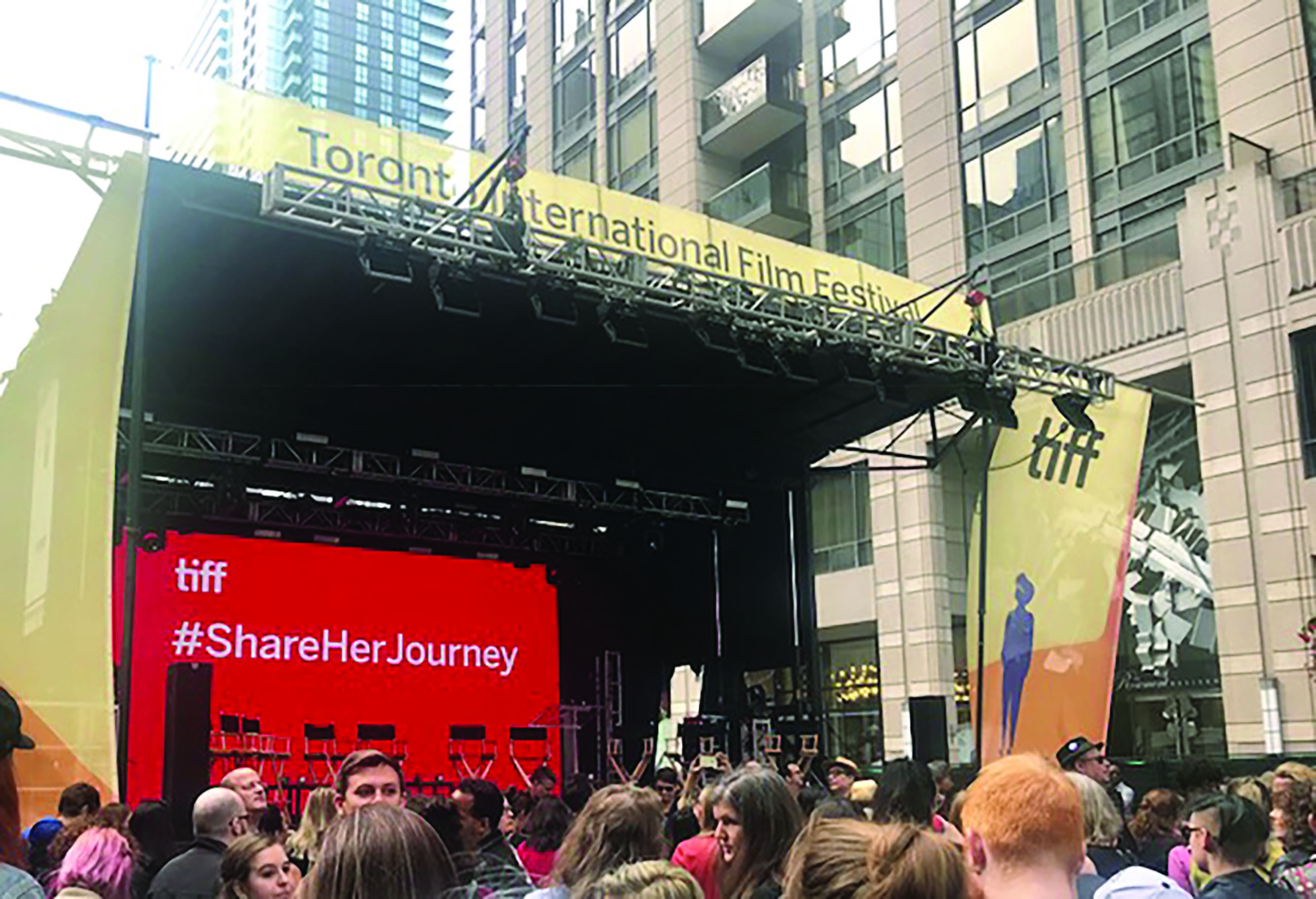Golnaz Taherian | Arts Editor
Featured Image: Intelligent women in the film industry talked about different kinds of inequality. | Golnaz Taherian
On September 8, the Toronto International Film Festival (TIFF) hosted an event called ‘Share Her Journey’ in support of gender equality in the film industry. On a chilly day, a multiracial crowd of men and women gathered on John Street, to call for gender parity in the film industry, both behind and in front of the camera.
The rally occurred to shine a light on the deficiency of female representation in the film industry. For example, there’s long been a lack of women’s roles in movies. The rally sought to expose this and other examples of gender bias in the industry, as well as celebrate female voices of all races and backgrounds.
The rally featured a number of talented and passionate women who shared their personal journeys and spoke about different kinds of inequality.
Actress Geena Davis, who produced the film ‘This Changes Everything,’ which premiered this year at TIFF, came out to speak about on-screen inequality. Davis noted that this inequality first caught her attention when she played cartoons for her toddler and noticed that there were fewer female characters.
The producer decided to do something about this lack of representation and gender-bias by bringing the subject of inequality up at meetings with the cartoon’s creators.
Davis optimistically asserted that screen inequality can be easily fixed, stating: “The next TV show, the next movie that someone makes, it can be gender balanced. It can be fixed instantly. The motto that we have in my institute is if they see it, they can be it, and it’s literally true.”
Doctor Stacy L. Smith, founder of Annenberg Inclusion Initiative, stepped up to defend the equality of women of colour throughout the industry, stating: “Intersectionality is important in all of the work that we do.”
Smith spoke about how the leadership of the audience and people in the industry is a crucial factor in changing this inequality, and argued that the community should “lift all the voices, women, people of colour, the LGBTQ+ community and people with disabilities. All voiced need to be lifted up from the intersectional lens.”
Mia Kirshner, the co-founder of #AfterMeToo, helped a lot of women who were sexually harassed in the workplace, also spoke at the rally.
Kirshner asked leaders to do more for the victims, rather than just voicing support.
She asserted that the solution to gender parity is the creation of a single, safe internet platform where women can easily report their cases and find resources, rather than wasting time searching the web. She says: “I don’t want anybody to go through these web searchers anymore. I want to explain step-by-step what each form means. I want this platform to help you fill out your forms. There will be live support on the phone, all in one place, so we don’t have to keep on searching. We need to be leaders.”


